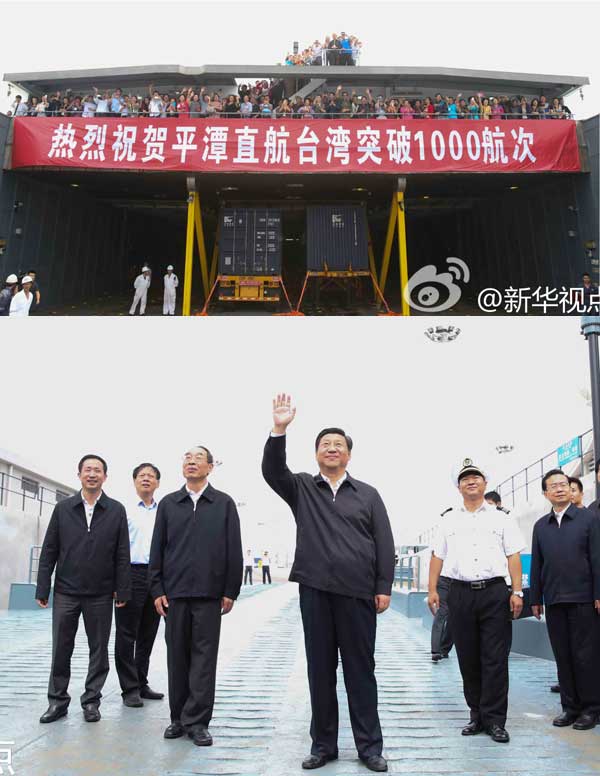Risk of complacency for HK, Macao, Taiwan
China Daily, December 10, 2014 Adjust font size:

|
This combination photo taken on Nov. 1, 2014 shows Chinese President Xi Jinping (R) waving goodbye to tourists who are about to leave for China's Taiwan at the Pingtan Strait Ferry Terminal in Pingtan, East China's Fujian Province. Xi made an inspection tour to East China's Fujian Province on Nov. 1 and 2. (Xinhua/Lan Hongguang) |
The old growth engines of Hong Kong, Macao and Taiwan are decelerating. The new ones are predicated on deeper economic ties with the Chinese mainland.
The governing Kuomintang Party recently suffered a landslide defeat in local elections in Taiwan. As a result, Kuomintang head Ma Ying-jeou resigned as KMT chairman. In Hong Kong, protesters are divided about the future of "Occupy Central", which almost paralyzed Hong Kong's financial district in the fall. As Macao has been preparing for celebrations for the 15th anniversary of its return to the motherland, Macao Chief Executive Fernando Chui Sai-on has to address its dependency on casino revenues.
In the West, these events have been reported as the dissatisfaction of the residents of Taiwan, Hong Kong and Macao with mainland ties. Realities are more nuanced.
Understandably, the residents of Hong Kong, Macao and Taiwan feel proud of their distinctive identity after decades, even centuries of colonial rule. But set aside the issue of identity and ask these residents whether they would be better off without the mainland. Most would respond in the negative.
The simple reality is that today Hong Kong, Macao and Taiwan are more integrated with the mainland than ever before. The Chinese mainland and Hong Kong together absorb more than 40 percent of all exports from Taiwan. In turn, Taiwan's impressive current account surplus includes massive private sector investment on the mainland, while its financial sector is increasingly exposed to the mainland's financial institutions.
The mainland and Hong Kong absorb more than 70 percent of Macao's exports. Macao would not survive without millions of visitors from the mainland and Hong Kong.

